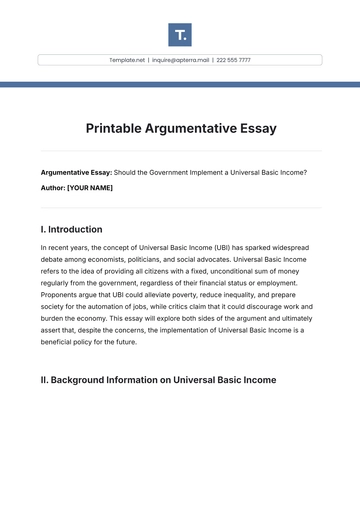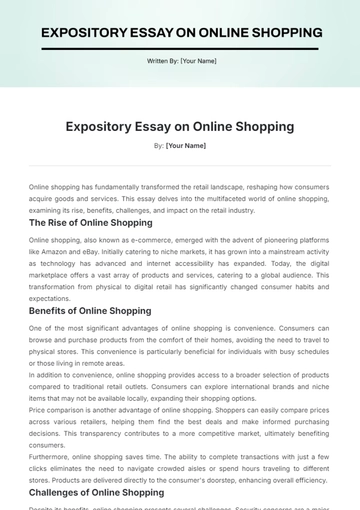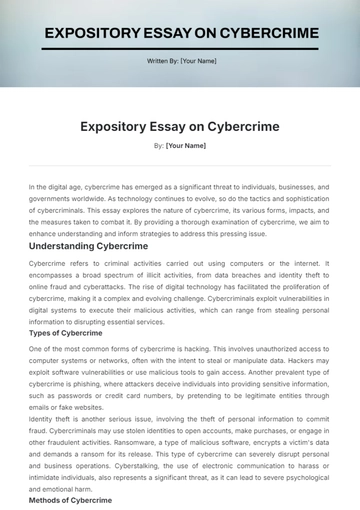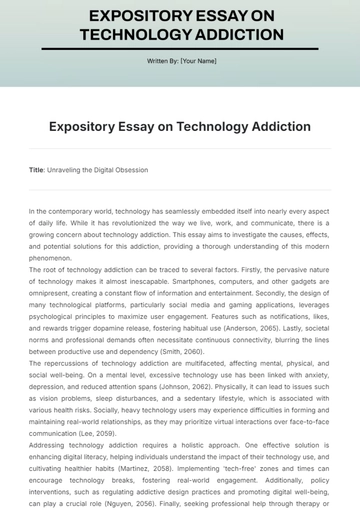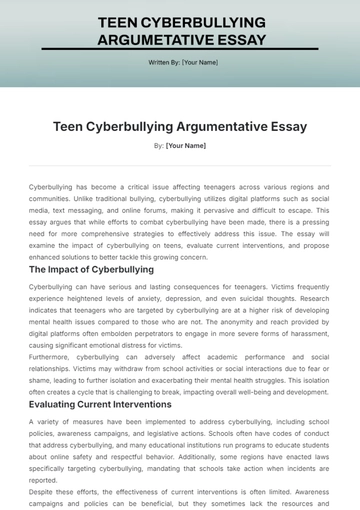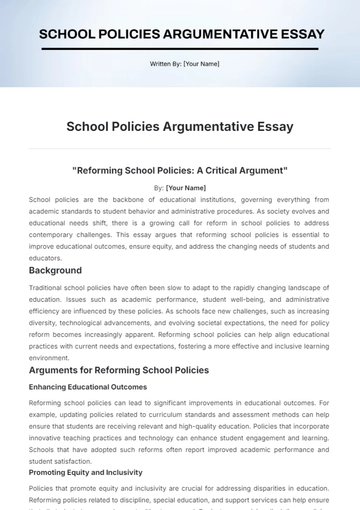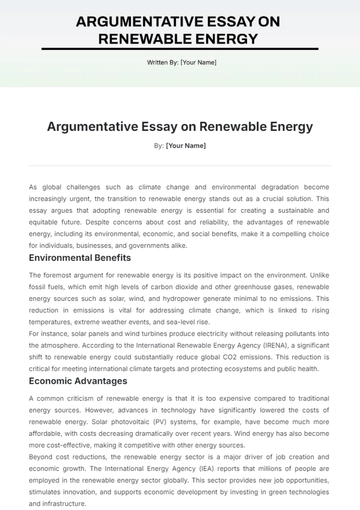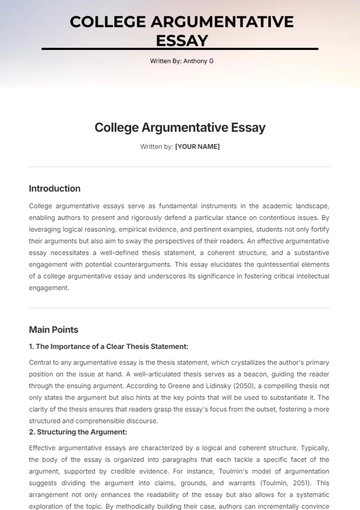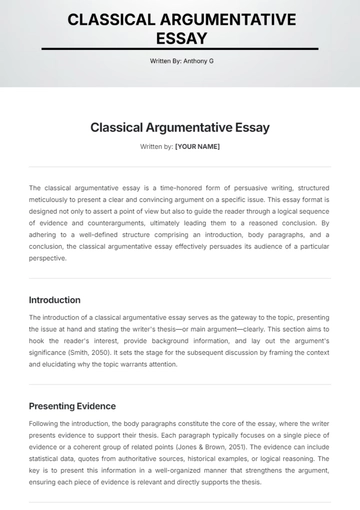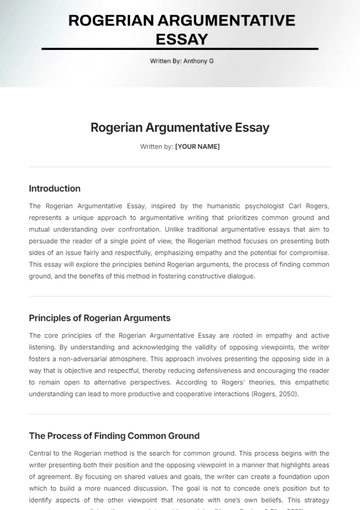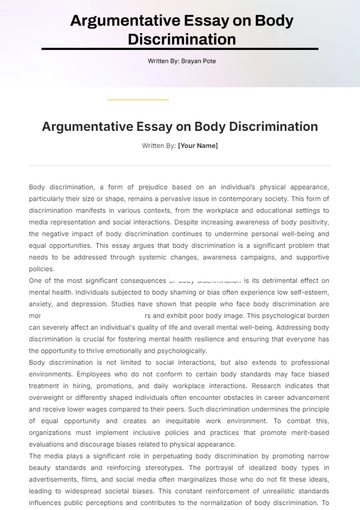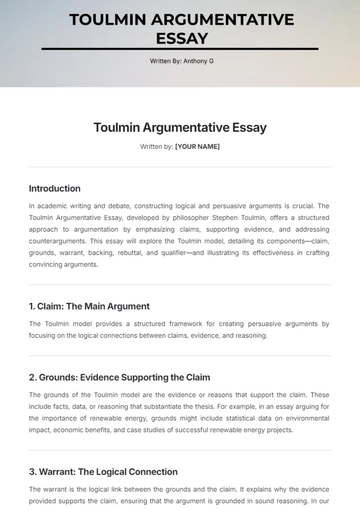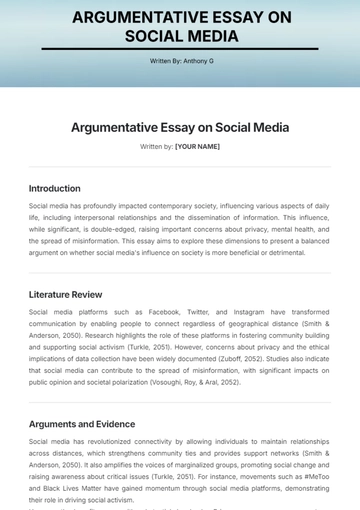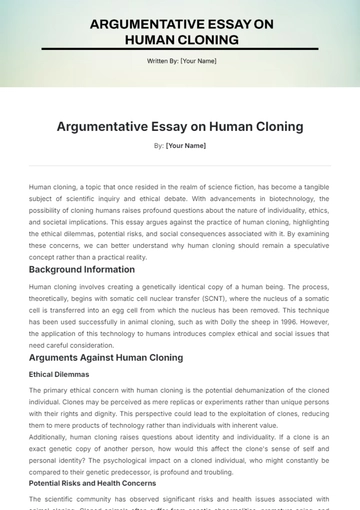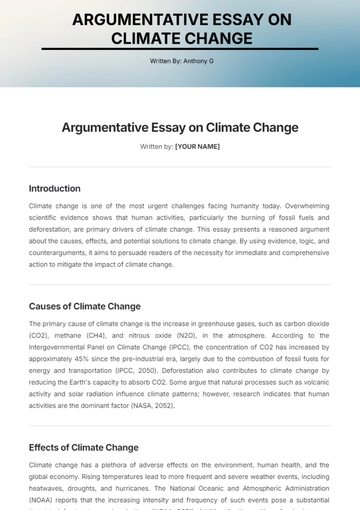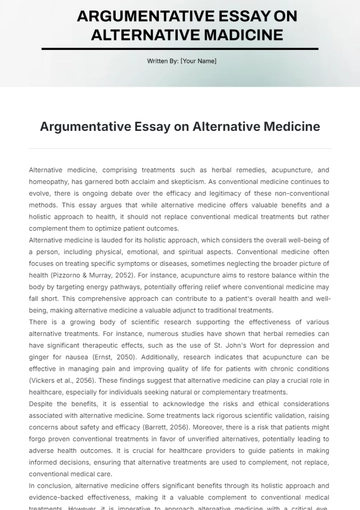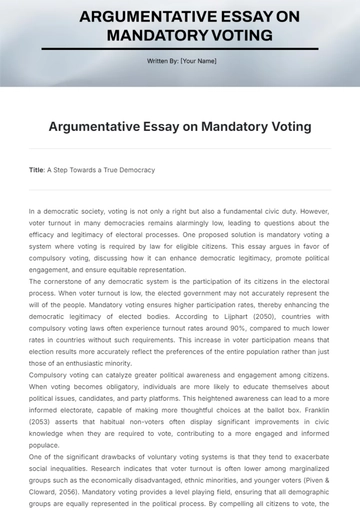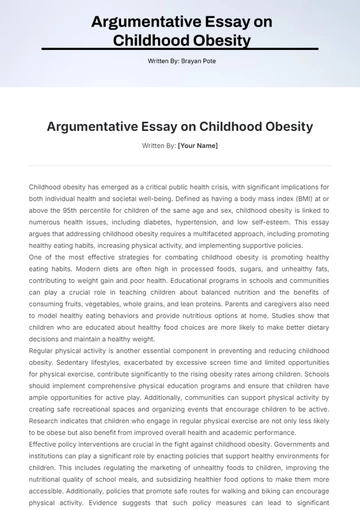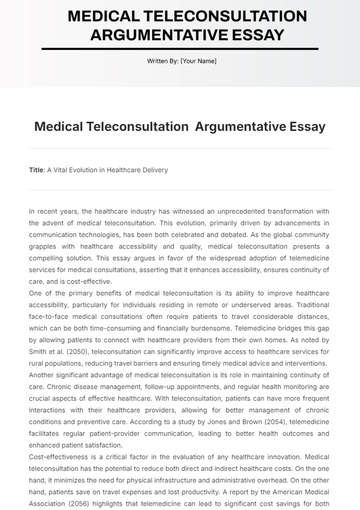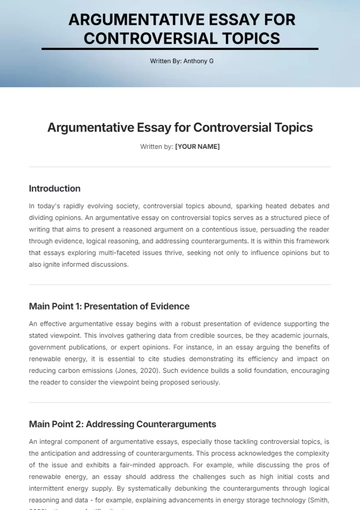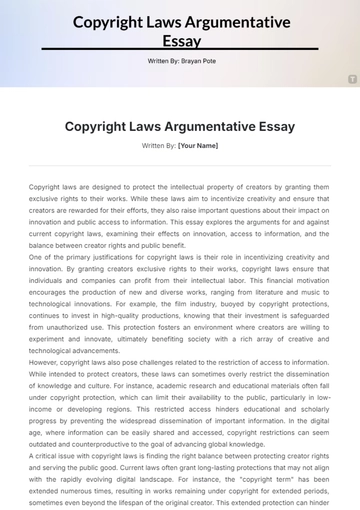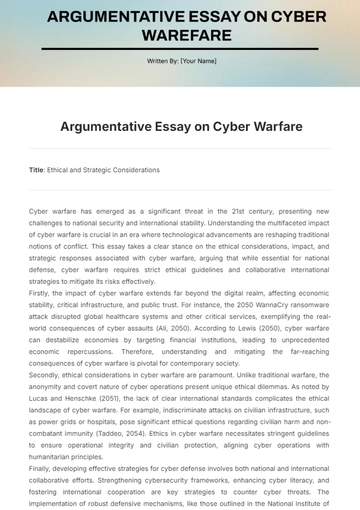Free Persuasive Essay Outline
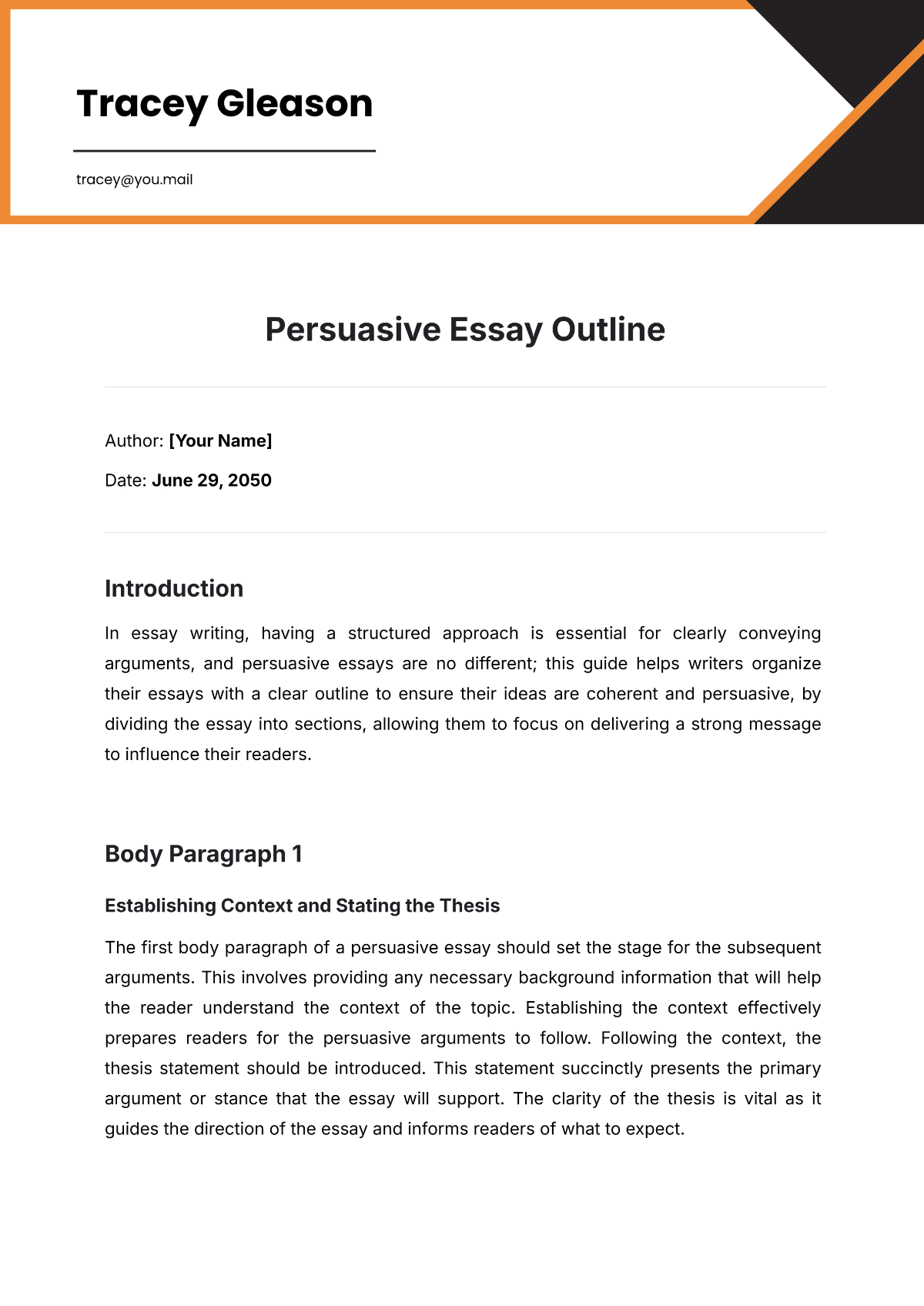
The Importance of Renewable Energy
Author: [YOUR NAME]
I. Introduction
In recent years, the world has seen an unprecedented shift toward renewable energy sources as concerns about climate change and environmental degradation grow. Fossil fuels, long relied upon for energy production, are becoming less viable as their environmental impact becomes increasingly apparent. Renewable energy sources, such as wind, solar, and hydroelectric power, provide an opportunity to reduce carbon emissions, promote sustainability, and ensure a stable energy future. This essay will argue that the adoption of renewable energy is essential for the future of the planet, offering both environmental and economic benefits.
II. The Environmental Benefits of Renewable Energy
One of the most compelling reasons to switch to renewable energy is the positive impact it would have on the environment. Traditional fossil fuels like coal, oil, and natural gas release harmful greenhouse gases into the atmosphere, contributing to global warming and climate change.
According to the Intergovernmental Panel on Climate Change (IPCC), burning fossil fuels accounts for approximately 75% of global carbon emissions. In contrast, renewable energy sources produce little to no greenhouse gases, which helps mitigate the effects of climate change. For example, solar energy systems generate electricity without emitting carbon dioxide, and wind energy harnesses natural forces without depleting resources or polluting the air.
The shift to renewable energy is not just an environmental necessity but a matter of survival. The long-term consequences of ignoring renewable options could lead to more frequent natural disasters, loss of biodiversity, and severe economic consequences. As such, transitioning to renewable energy is crucial to preserving the planet for future generations.
III. Economic Advantages of Renewable Energy
While environmental concerns are a driving force behind the push for renewable energy, economic benefits also make this transition appealing. Initially, the cost of renewable energy technology may seem high, but the long-term savings and economic growth generated by the renewable energy sector are undeniable. For instance, investments in wind and solar power create jobs in manufacturing, installation, and maintenance, helping to stimulate local economies. According to the International Renewable Energy Agency (IRENA), the renewable energy industry created over 11 million jobs globally in the last decade.
Furthermore, renewable energy can decrease dependence on foreign oil, providing energy security for nations. By investing in domestic renewable energy infrastructure, countries can reduce the volatility of oil markets and stabilize energy prices. This would, in turn, improve energy affordability and foster a more resilient economy. For example, Denmark, which has invested heavily in wind energy, now produces nearly 50% of its electricity from wind power, reducing its reliance on fossil fuels and positioning itself as a leader in clean energy.
IV. The Potential for a Sustainable Future
Renewable energy is not just a temporary solution; it is a long-term strategy that promises a sustainable future. Unlike fossil fuels, which are finite and depleting, renewable sources are abundant and inexhaustible. Solar energy, for example, is expected to continue being available for billions of years, offering an ongoing supply of clean power. This shift to sustainability is necessary not only to address climate change but also to meet the growing energy demands of the future. As populations increase and urbanization accelerates, the world will require innovative solutions to ensure sufficient energy supply without harming the environment.
The integration of renewable energy into our power grids can also foster technological advancements in energy storage and efficiency. With continued research and investment, we could see breakthroughs in battery storage, enabling solar and wind energy to be harnessed even when the sun isn’t shining or the wind isn’t blowing. These advancements could revolutionize the energy sector, making renewable energy more reliable and accessible to people everywhere. A notable example of this is Tesla's development of the Powerwall, a home battery system designed to store solar energy for later use, significantly improving energy storage capabilities.
V. Counterargument and Rebuttal
Some critics argue that renewable energy is too expensive and unreliable to replace fossil fuels on a large scale. While it is true that the initial investment in renewable energy infrastructure can be costly, the long-term benefits far outweigh these costs. Technological advancements have significantly reduced the price of solar panels and wind turbines in recent years, making them more affordable for both businesses and homeowners. According to the U.S. Department of Energy, the cost of solar energy has dropped by 70% over the past decade, making it competitive with traditional fossil fuel-based power generation.
Furthermore, the reliability of renewable energy continues to improve as energy storage technology advances. The belief that renewable energy is insufficient to meet global energy needs is also being debunked by research. Studies have shown that a diverse energy mix, combining solar, wind, and other renewables, can reliably meet the energy demands of even large-scale industrial economies. In fact, countries like Germany and Spain have demonstrated the viability of 100% renewable energy for extended periods of time, proving that a transition to clean energy is not only possible but also practical.
VI. Conclusion
The shift toward renewable energy is no longer a choice; it is a necessity. The environmental and economic benefits of renewable energy make it the only viable path forward for a sustainable and prosperous future. By embracing solar, wind, and other renewable sources of energy, we can protect the planet, create jobs, and ensure energy security for generations to come. The time to act is now, before the consequences of inaction become irreversible.
- 100% Customizable, free editor
- Access 1 Million+ Templates, photo’s & graphics
- Download or share as a template
- Click and replace photos, graphics, text, backgrounds
- Resize, crop, AI write & more
- Access advanced editor
Craft compelling arguments effortlessly with the Persuasive Essay Template from Template.net. This fully customizable, editable template provides a structured foundation for any persuasive essay. Designed to work seamlessly with Template.net's AI Editable Tool, it allows users to personalize each section, enhancing productivity and ensuring your message resonates effectively with any audience. Perfect for students, educators, and professionals alike.

